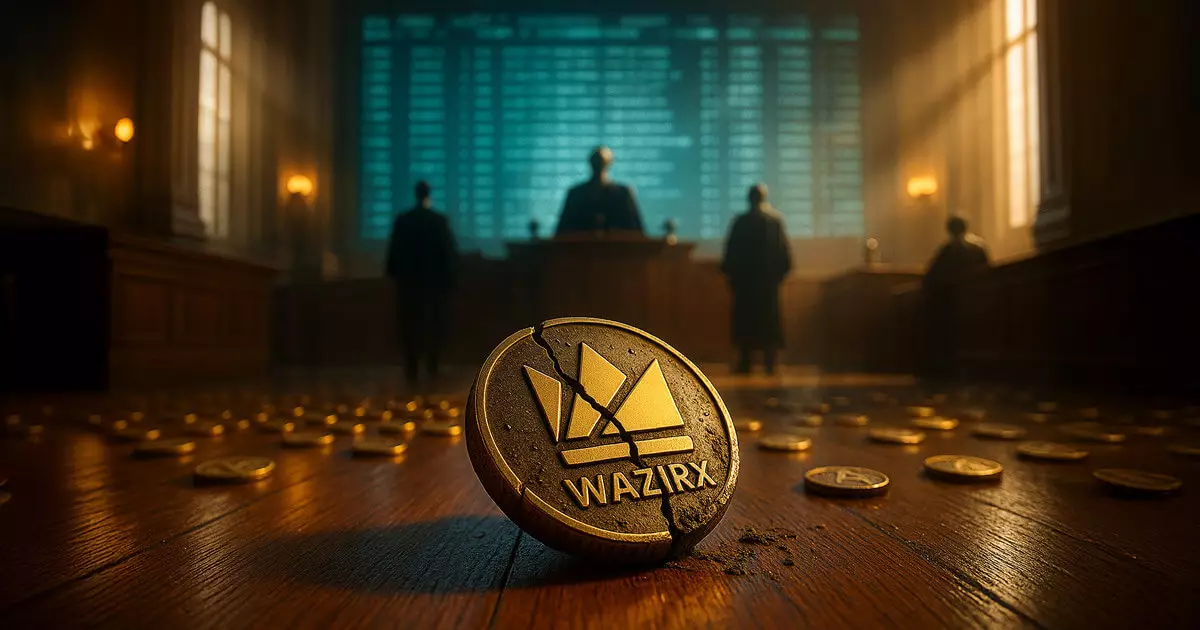WazirX, one of the prominent players in the cryptocurrency exchange arena, has encountered a significant roadblock as the Singapore High Court has unequivocally denied its restructuring proposal after a staggering $230 million hack in July 2024. The announcement on June 4 hit like a ton of bricks—not just for WazirX, but for the entire crypto community that had been hopeful for a swift recovery and restoration of services. In the face of substantial creditor support, with over 93% signaling approval for the plan, the court’s rejection raises troubling questions about the integrity of the judicial system and the unpredictability of regulatory landscapes within the crypto world.
From Hope to Reality: The Harsh Truth
The court’s ruling has dealt a crushing blow to WazirX’s hopes of meticulously distributing recovered assets and resuming trading operations. As a result, their optimism—once palpable—is giving way to a harsh reality that even a well-supported plan cannot guarantee an outcome. This episode exposes the fragile nature of the cryptocurrency market, showcasing how even exchanges with a loyal customer base can find themselves in dire circumstances due to regulatory uncertainties and cybersecurity threats.
WazirX’s public response is laden with resignation, labeling the court’s decision as unexpected while asserting their commitment to legal processes. Yet, behind this veneer of professionalism is a stratum of anxiety and frustration. It’s one thing to declare compliance, but the question looms—what is left for an exchange when legal routes turn hostile and the very foundation of your operations is shaking?
Migrating to Panama: A Controversial Escape?
Now comes the controversial shift—WazirX’s decision to move operations from Singapore to Panama. While this may appear to be a strategic decision to evade stringent regulations, the crypto community is fraught with skepticism. Influencer RK Gupta’s dire warnings are illustrative of a simmering distrust among users; “This isn’t a fresh start, it’s a cover-up.” One cannot ignore that such migrations often scream of avoidance rather than adaptability.
Relocating to a tax haven raises ethical questions about the responsibilities of companies aligned with burgeoning technologies like cryptocurrencies. Is WazirX treating regulatory norms as mere obstacles to be sidestepped? In this minefield of perception, the rebranding of WazirX’s parent company from Zettai to Zensui seems more sinister than refreshing—a testament to a strategy that mixes business with evasion.
Lessons in Resilience and Recklessness
At its core, the saga of WazirX serves as a brutal reminder of systemic vulnerabilities. The exchange has pledged to explore potential legal avenues, but will that translate to genuine accountability or merely another layer of obfuscation? While the statement “WazirX has faced challenges before” attempts to inspire resilience, one has to wonder if the lessons being learned are genuinely constructive or merely reactions to crises.
The trust that has been corroded throughout this incident represents a broader crisis not just for WazirX, but for the cryptocurrency industry as a whole. A field that promised financial revolution finds itself grappling with not just technological advances but the ethical dilemmas posed by corporate behavior. As WazirX prepares for its next chapter, the implications of this legal saga will reverberate throughout the industry, potentially laying bare the fault lines that run between innovation and accountability in the crypto world.


Leave a Reply